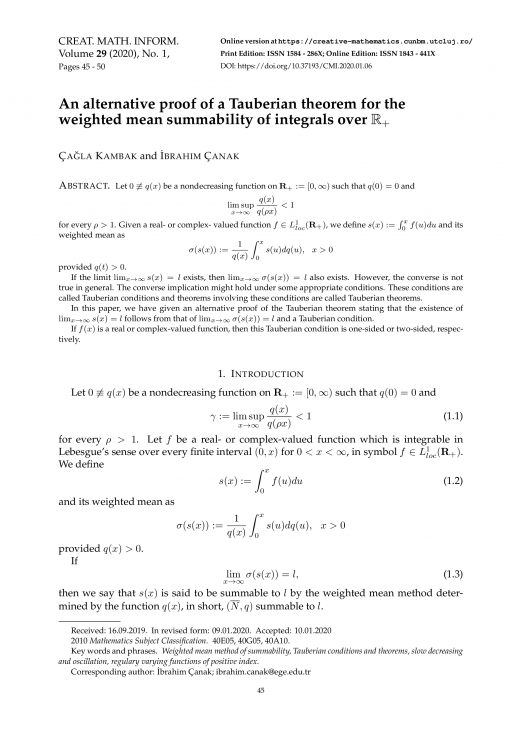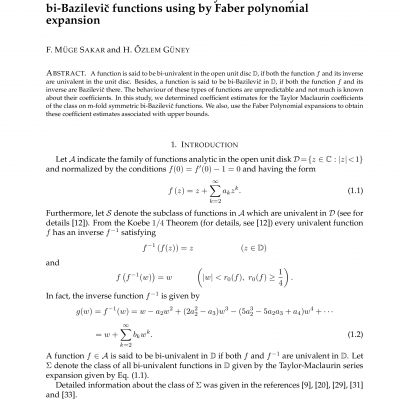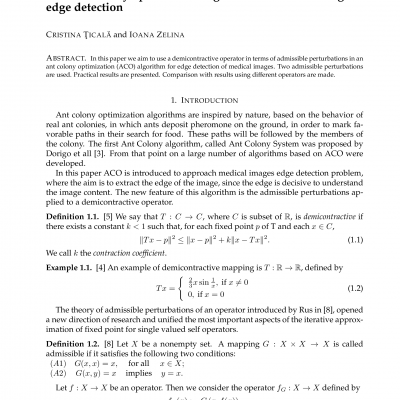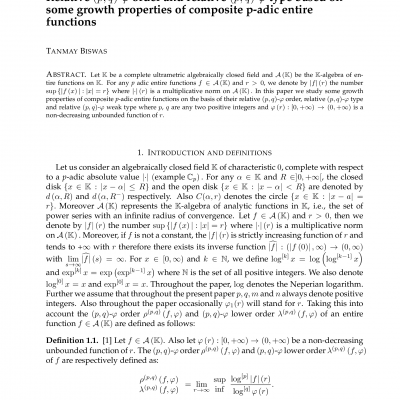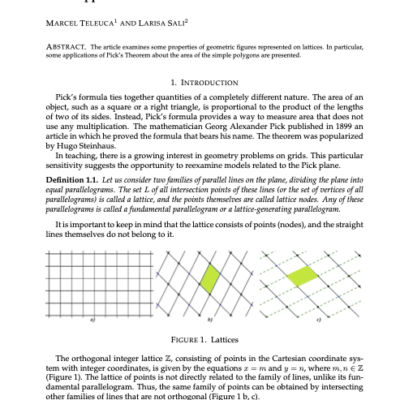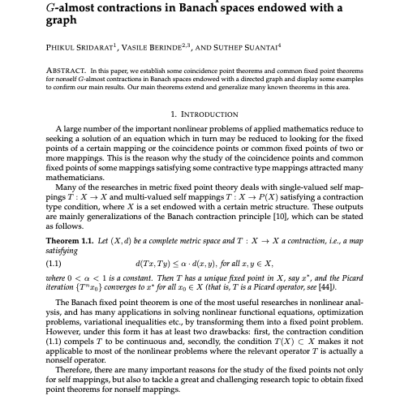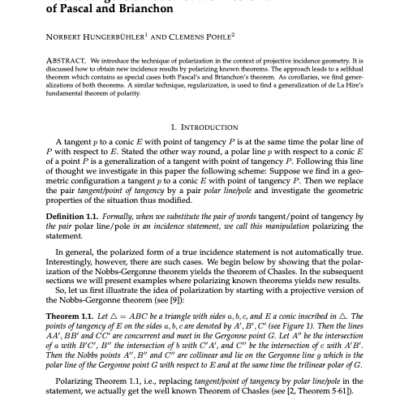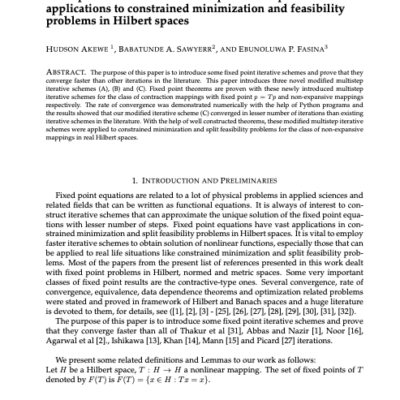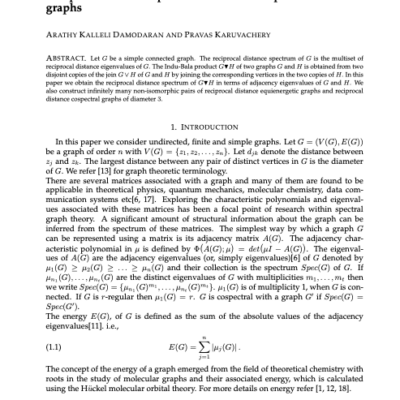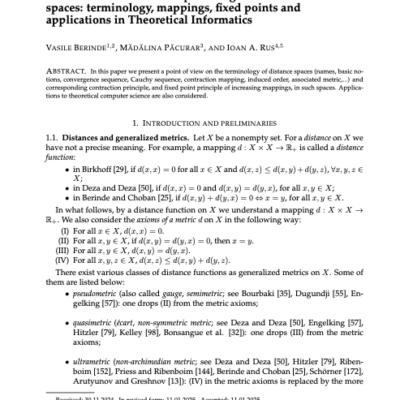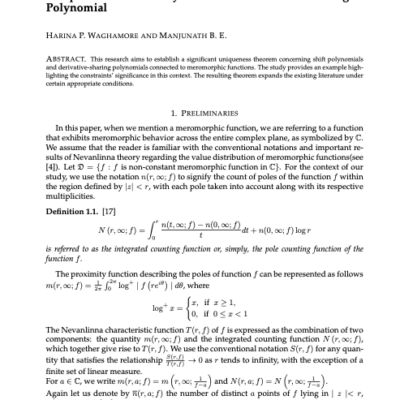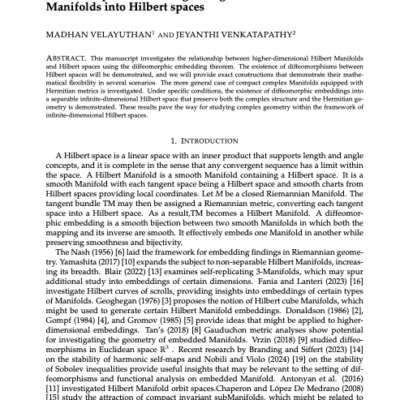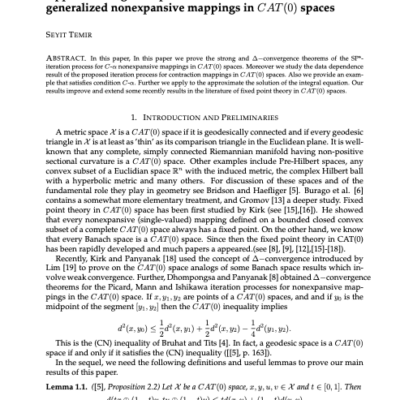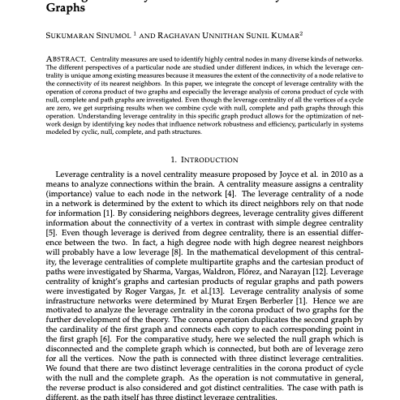Let ![]() be a nondecreasing function
be a nondecreasing function
on ![]() such that
such that ![]() and
and
![]()
for every ![]() .
.
Given a real- or complex- valued function ![]() , we define
, we define ![]()
and its weighted mean as
![]()
provided ![]() .
.
If the limit ![]()
exists, then ![]() also exists. However, the converse is not true in general.
also exists. However, the converse is not true in general.
The converse implication might hold under some appropriate conditions. These conditions are called Tauberian conditions
and theorems involving these conditions are called Tauberian theorems.
In this paper, we have given an alternative proof of the Tauberian theorem stating that
the existence of ![]() follows from that of
follows from that of ![]()
and a Tauberian condition.
If ![]() is a real or complex-valued function, then this
is a real or complex-valued function, then this
Tauberian condition is one-sided or two-sided, respectively.

